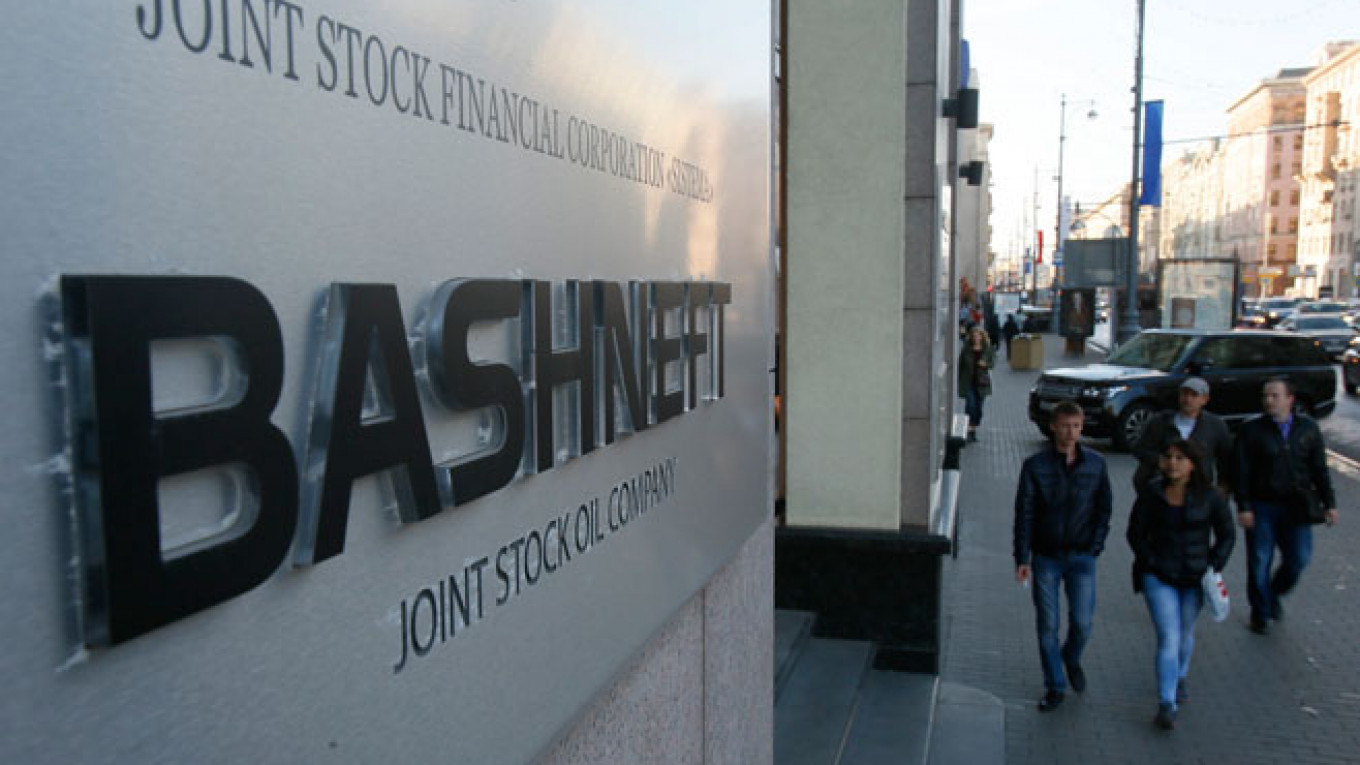Kremlin press secretary Dmitry Peskov has said that any comparisons between Sistema and the Yukos affair are baseless and inappropriate.
It's a good thing he said that, or else I might have been struck by the amazing parallels between the two. Both cases were initiated as challenges to the legality of how assets were privatized — apatite deposits in one and Bashkir fuel and energy in the other.
In the Yukos case, a State Duma deputy lodged the complaint, and in the Sistema case, it was reportedly Bashkortostan President Rustem Khamitov: After the Sept. 14 elections he publicly stated his attitude toward Bashneft's 2003 privatization, saying the republic's budget received not even a penny from the deal.
Next, both cases invoked Article 160 of the Criminal Code on misappropriation and embezzlement and both referred to the involvement of large organized groups. Both cases also invoked Article 174 on money laundering, again allegedly involving large organized groups.
Of course, Sistema owner Vladimir Yevtushenkov was only placed under house arrest, unlike former Yukos owners Platon Lebedev and Mikhail Khodorkovsky, who were both imprisoned. It is probably a "baseless and inappropriate" comparison to mention that house arrest is actually the maximum penalty for a violation of Article 174. And it would be unseemly to note that the Yukos affair began shortly after the company's management made the unpatriotic decision to deal with U.S. company ExxonMobil while the Sistema case was launched shortly after owners decided to hold a public offering for Bashneft on the London Stock Exchange.
Why do I say these comparisons are "baseless and inappropriate"? Because of the example of LUKoil. Like the Yukos and Sistema cases, in the case concerning LUKoil the authorities also raised concerns about privatization and shares-for-loans auctions, charges of tax evasion, the involvement of U.S. partners and the trading of vouchers on foreign stock exchanges — as Sistema is charged with doing in a joint venture with Bashneft, a company that investigators claim was obtained illegally.
And yet, the authorities leveled no charges of embezzlement or inappropriate legalization against LUKoil. Does that mean some companies can work in the oil and gas industry while others are not allowed? If so, then how to understand which companies have the right?
The fundamental difference between Sistema and LUKoil is that Vladimir Yevtushenko has diversified holdings while LUKoil chief executive Vagit Alekperov has almost exclusively oil and gas assets.
Also, Alekperov is not trying to make LUKoil public: to the contrary, he is quietly buying up the company's market shares. Sistema, meanwhile, lists two of its companies — MTS and Bashneft — on the stock exchange and had plans to list Detsky Mir and two more companies as well.
Perhaps it is unpatriotic to list companies on a stock exchange, especially a Western one. Would it be wrong to consider Tatneft — headed by the president of Tatarstan — as a more suitable model for Bashneft?
Aside from old and Kremlin-loyal LUKoil, the only notable private oil and gas companies still on the market are Novatek, owned by close Putin associate Gennady Timchenko, and the independent NNK company owned by Eduard Khudainatov, former president of Rosneft.
It appears that outsiders are not welcome.
Kirill Kharatyan is the deputy chief editor of Vedomosti. This comment appeared in Vedomosti.
A Message from The Moscow Times:
Dear readers,
We are facing unprecedented challenges. Russia's Prosecutor General's Office has designated The Moscow Times as an "undesirable" organization, criminalizing our work and putting our staff at risk of prosecution. This follows our earlier unjust labeling as a "foreign agent."
These actions are direct attempts to silence independent journalism in Russia. The authorities claim our work "discredits the decisions of the Russian leadership." We see things differently: we strive to provide accurate, unbiased reporting on Russia.
We, the journalists of The Moscow Times, refuse to be silenced. But to continue our work, we need your help.
Your support, no matter how small, makes a world of difference. If you can, please support us monthly starting from just $2. It's quick to set up, and every contribution makes a significant impact.
By supporting The Moscow Times, you're defending open, independent journalism in the face of repression. Thank you for standing with us.
Remind me later.








